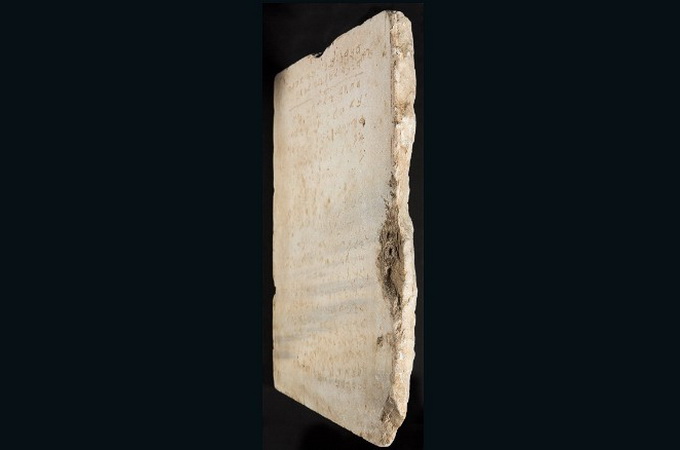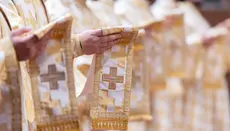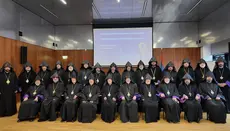Earliest known stone version of Ten Commandments auctioned in USA for $ 850 thousand

Described as a "national treasure" of Israel, the stone was first uncovered in 1913 during excavations for a railroad station near Yavneh in Israel and is the only intact tablet version of the Commandments thought to exist. It lists nine of the 10 commonly known Biblical Commandments from the Book of Exodus, with an additional Commandment to worship on the sacred mountain of Mount Gerizim, near Nablus, which is a now a city in the West Bank.
The two-foot-square (0.18 square meter), 115-pound (52 kg) marble slab is inscribed in an early Hebrew script called Samaritan and most likely adorned a Samaritan synagogue or home in the ancient town of Jabneel, Palestine, which is now Yavneh in modern Israel.
The tablet's home was either destroyed by the Romans between 400 and 600 AD, or by the Crusaders in the 11th century, and that the stone had lain buried in the rubble of the ruins for centuries before its discovery near Yavneh.
The workmen who found it did not recognize its importance and either sold or gave it to a local Arab man, who set the stone into the threshold of a room leading to his inner courtyard, with the inscription facing up.
Thirty years later, in 1943, the man's son sold the stone to a Mr. Y. Kaplan, a municipal archaeologist. The latter immediately recognized its importance as an extremely rare 'Samaritan Decalogue,' one of five such known stone inscriptions that date to the late Roman-Byzantine era (300-640 AD) or just after the Muslim invasion of the seventh century AD.
Kaplan eventually sold the stone to an American, Rabbi Saul Deutsch, who took it to the US and put it on display at his Living Torah Museum in Brooklyn, New York.
Described as a "National Treasure" by Israel, its export was approved under a special permit issued in 2005 by the Israel Antiquities Authority (IAA).
The only stipulation is that the stone can be sold to a third party, but only on condition that it be placed on public display "where all can view it and enjoy."
0
0
If you notice an error, select the required text and press Ctrl+Enter or Submit an error to report it to the editors.
Read also

Priests and laity of Rivne Eparchy donate blood for children with cancer
20 February 21:06

Kyiv seminary students meet with People’s Artist Larisa Kadochnikova
20 February 20:30

Bancheny Monastery reports provocation
20 February 20:14

Romanian Church to hold joint prayer for peace in Ukraine
20 February 16:46

Armenian bishops call on authorities to stop Church persecution
20 February 16:07






